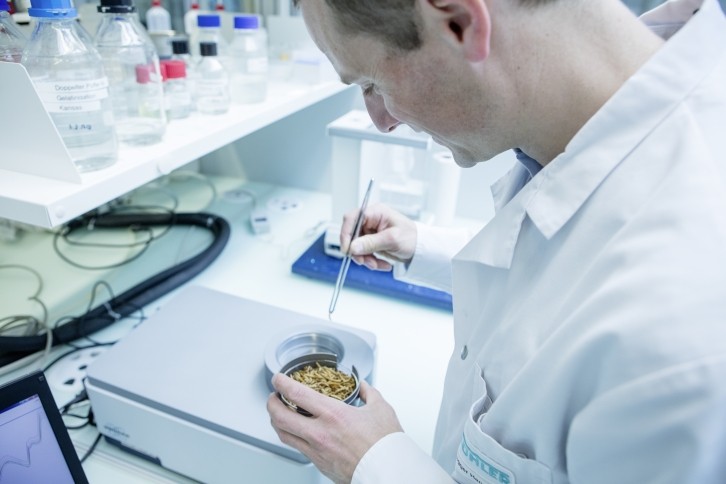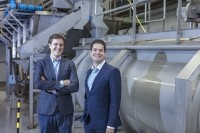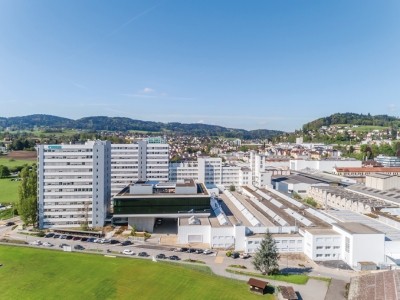A new Dutch plant will be the first in Protix and Buhler insect tie-up

Bühler will deliver the technology, equipment, and process know how for the rearing and processing of the insects and the feedstock preparation, while Protix will leverage its operational expertise in the area of breeding, rearing and processing of insects for the build.
The plant will serve customers in the feed industry and is scheduled to come on stream in the first half of 2018, said the companies.
The facility is set to produce protein meal and lipids that are used in the animal nutrition sector to feed pigs, chicken, fish, and domestic animals.
The plant will mainly use distilled grains from local breweries and vegetable wastes from local food producers in the Netherlands, a spokesperson for Bühler told us.
He added that Bühler has made significant improvements to the production process for insect protein in terms of energy efficiency.
Joint venture launch
In January, Bühler and Protix founded the JV, Bühler Insect Technology, to build insect processing plants. They said this facility “will serve as a modular and scalable blueprint for future projects.”
"We are currently in negotiations for several [insect factory build] opportunities in Europe and Asia," added the spokesperson.
The firms said protein production needs to double by 2050, and said this cannot be achieved using traditional farming practices and resources, which is why alternative sources for protein such as insects or algae are becoming increasingly important.
Insects offer a sustainable alternative, they stressed. Grown on organic residues, they can recover up to 70% of nutrients, thus recycling these underutilized streams back to the food value chain, said Bühler.
Industry scale-up
Mike Velings, co-founder of Aqua-Spark, which invested in the recent investment round for Protix is very enthusiastic about the potential of insect meal production.
He sees it becoming mainstream in ten years’ time. “Not in terms of it being a bulk commodity like soy – it is not going to get to that point in a decade - but mainstream in terms of it being widely accepted, and scaled up.”
Once it gets that kind of momentum behind it, insect protein production will continue to ramp up, to become a commodity priced feed ingredient within 20 or 30 years, he added.
He was also very positive about the LCA credentials of the insect production business and its capacity to upcycle low value waste, and use minimal land. “You take one kilo of waste and you put that into an insect production system, and out of that you get zero waste and multiple end products, from water, to fertilizer, to meal and lipids – high end products with their own unique characteristics. It is not only about the percentage of protein that is produced.”









